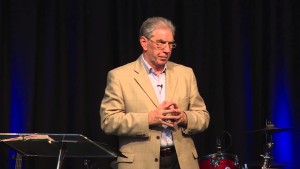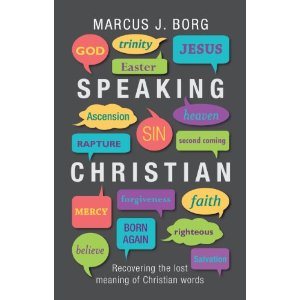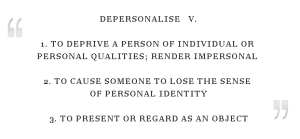 Over on the other abuse blog, victimsofmichaelreid.blogspot, there is an interesting and instructive discussion going on. Since I last wrote about Trinity Brentwood, the church have introduced two new ministers to look after things during the extended leave of Peter Linnecar. Unfortunately, for the church, the official website for the church has posted examples of their preaching. This has enabled followers of the blog to do some cheeky irreverent deconstructions of their sermons. No doubt the person who posted the sermons thought that they were in some way encouraging the members of the church. What they have done is to show up the incredible shallowness of the preaching at Trinity Church at present. The main blog poster who has commented on these sermons shows some theological background and is well informed. I have made my own comment as Anonymous 14.19 on the 15th September.
Over on the other abuse blog, victimsofmichaelreid.blogspot, there is an interesting and instructive discussion going on. Since I last wrote about Trinity Brentwood, the church have introduced two new ministers to look after things during the extended leave of Peter Linnecar. Unfortunately, for the church, the official website for the church has posted examples of their preaching. This has enabled followers of the blog to do some cheeky irreverent deconstructions of their sermons. No doubt the person who posted the sermons thought that they were in some way encouraging the members of the church. What they have done is to show up the incredible shallowness of the preaching at Trinity Church at present. The main blog poster who has commented on these sermons shows some theological background and is well informed. I have made my own comment as Anonymous 14.19 on the 15th September.
I myself tried to listen to the sermon of one of those parachuted into Trinity, David Shearman. I succeeded in listening to only two minutes before I could bear it no longer. I was therefore grateful to read the commentary and critique of the same sermon by the determined blog contributor who had persevered right through to the end. In my comment on what he said, I complimented him for his stamina in listening to some very painful and unedifying theology. What is the main objection that the anonymous blogger made about sermon preached by David Shearman? Simply stated, the blogger objects to a preacher who believes that to think something or to feel something is the same as receiving direct guidance from God. The sermon was filled with the words ‘I felt’ and this was the basis for the preacher to announce that the will of God for the congregation was contained in his words. Another blogger informed us that DS had preached the identical sermon somewhere else and it had been posted on YouTube. In other words it was the prophetic word of God for two different congregations! Cynics among us might believe that that recycling sermons is likely to be something he does quite often.
Listening in to a sermon away from the context of the church where it is being preached, means that one is removed from the internal dynamics of the congregation. One is also able to observe objectively something of these dynamics. By contrast it is impossible for a member of the congregation who has already surrendered their self-determination and independent thinking process to observe and analyse in this way. Also the position of the preacher within the architecture of the building reinforces the tendency of the vast majority of the congregation to accept his authoritative interpretations of Scripture as being binding on them. It is not difficult for a preacher like David Shearman to become more and more convinced of the truth of his own rhetoric over a period of years. The title of this piece, ‘the Lord laid it on my heart’, although not used in the sermon, is a summary of this kind of subjective, authoritarian but ultimately irrational theology.
David Shearman represents a subjective style of theology which is being shared in churches all over the country. The reason why preachers can continue in this vein for year after year, decade after decade, is simply because nobody who listens has any incentive or desire to challenge them even if they talk palpable nonsense. To say: ‘I feel something therefore I know what God is saying to me’, is unbelievable arrogance not to mention self-delusion. That this kind of preaching is entering once more the severely traumatised congregation of Trinity Brentwood, is bad news in the extreme. It reminds me of a film which explored, in a somewhat humorous vein, the history of an unnamed South American country. In this film a tyrant was overthrown and, almost immediately, the one who organised the coup began behaving in exactly the same way as the tyrant who had been defeated. For Trinity to bring in two people who subscribe to the same independent, unaccountable and arbitrary dispensing of superficial theology is to condemn that institution to continued danger and potential abuse of its members.
The expression, ‘the Lord laid it on my heart’ is a turn of phrase common in the Christian circles which do not hold themselves accountable to others. To be fair, it is a theological stance that is frequently challenged by others in more mainstream, less Pentecostal-type churches. You will find plenty of such ‘biblical’ critique if you search the web. The typical evangelical response and critique is to say that the preacher has to search the scriptures before declaring God’s will for the moment. But the real answer to this kind of theology is not, I believe, an abundance of text quoting, but the training of a mind to understand the wider Christian tradition and to recognise the difference between an idea which comes to us out of the blue and one which is thought through and maybe discussed with others. I refer to the ‘Christian tradition’ not least because I believe that many things that we regard as being new in the church have been explored in some way elsewhere in the world or in the past. In short Christian tradition is a template through which to look at new-fangled ideas. The problem is that most of us occupy too small a segment of this wider tradition and so find this kind of evaluation difficult to do. Tradition and the experience of other Christian cultures will often show how something that is considered the latest ‘word of God’ is not only not new but it may have been tried already and sometimes shown to be heresy or dangerous nonsense.
A second way of challenging subjective theology is to seek the guidance of other preachers and teachers or, in the case of a denomination, some kind of overseer. This is where the problem of independent fellowships is seen to be acute. There are simply no other structures in independent fellowships which might check the power and influence of a self-appointed preacher. People like Michael Reid are indeed dangerous in the same way as dictators. Such people control others without any recourse to law, custom or Parliamentary restraint. Christians must always avoid coming under the influence of any individual who claims to speak in the name of God quite independently and without the guidance of other people to provide some kind of balance or moderation. Such people are quite simply potentially extremely dangerous.
We await the report of John Langlois who, in all the chaos that is engulfing Trinity Brentwood at present, appears to be a figure of sanity and clarity. In a situation which resembles a kind of madhouse, it is good to have at least one person who seems to speak sense and is not caught up with the extraordinary dynamics of this congregation. Let us hope so. My readers can be sure that any progress in this direction will be fully reported and discussed by this blog.







